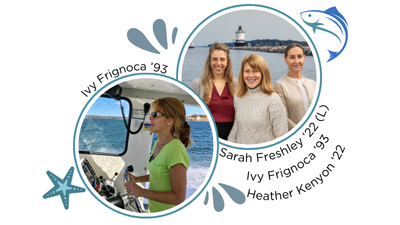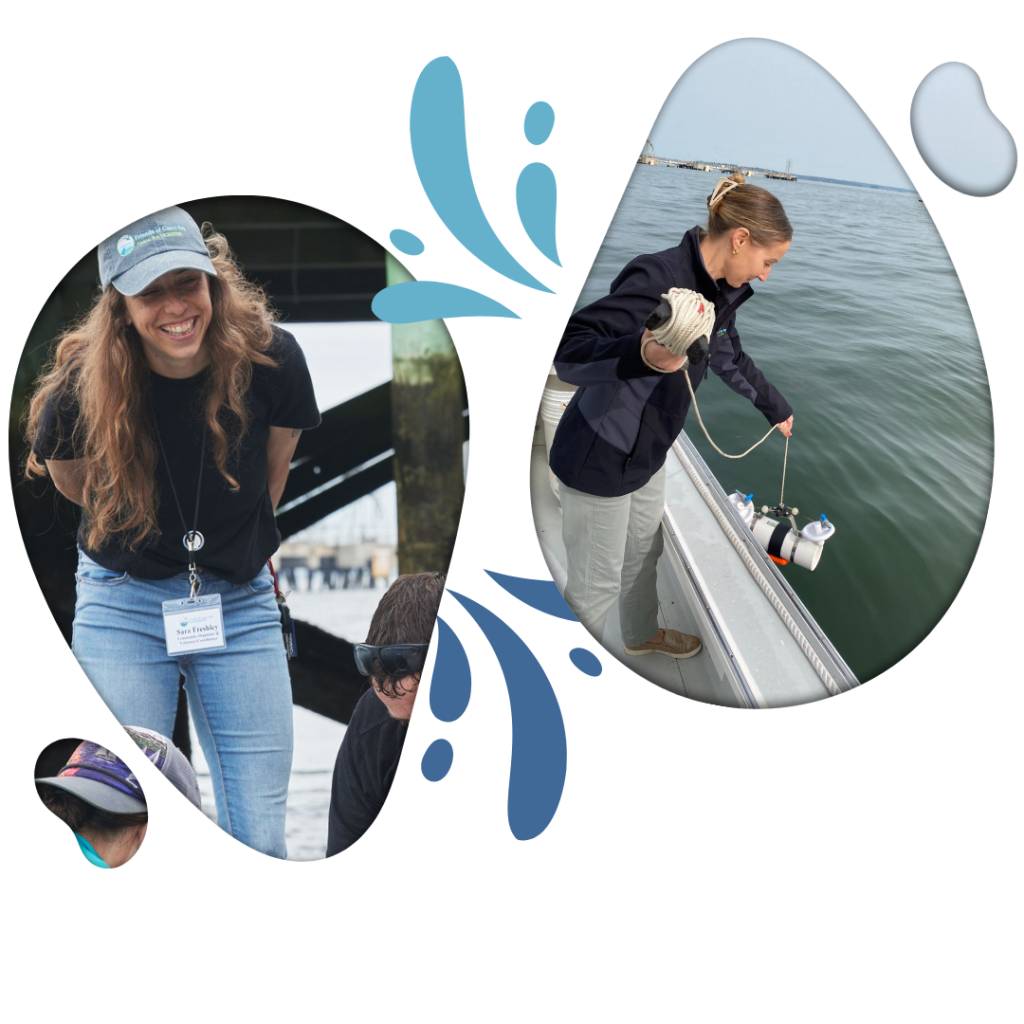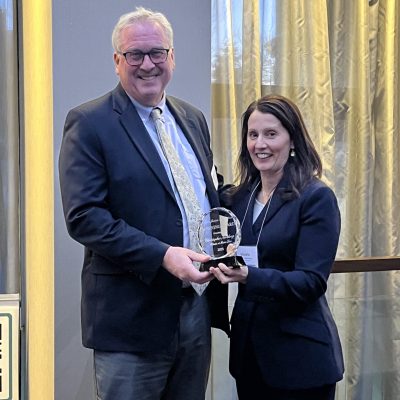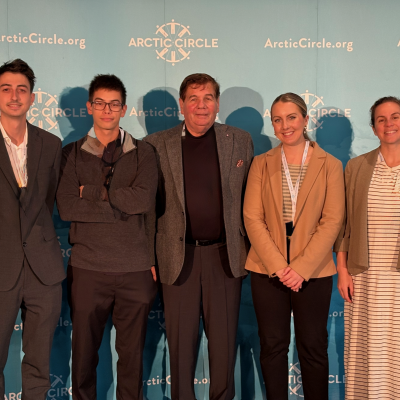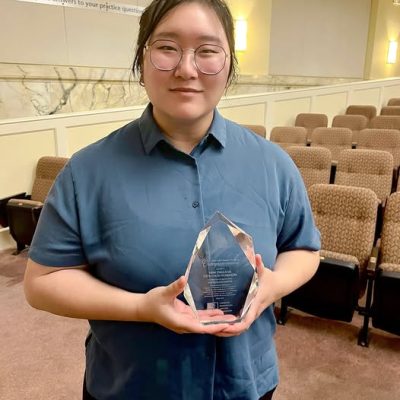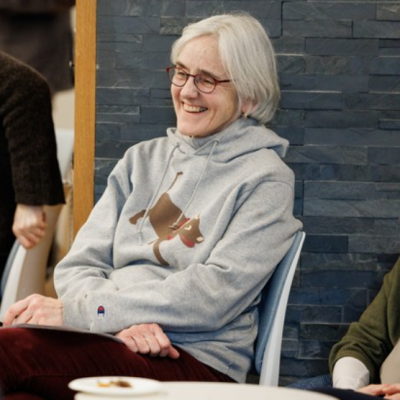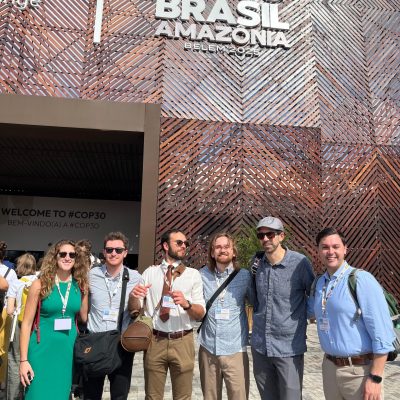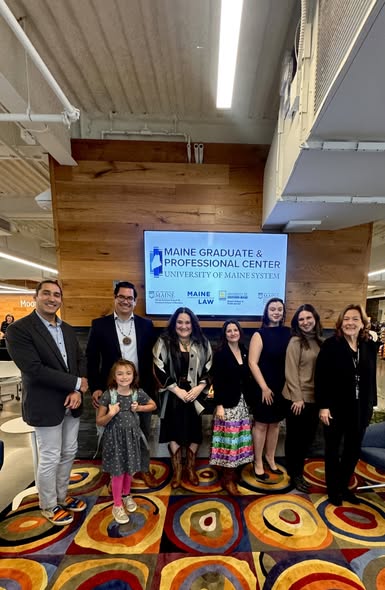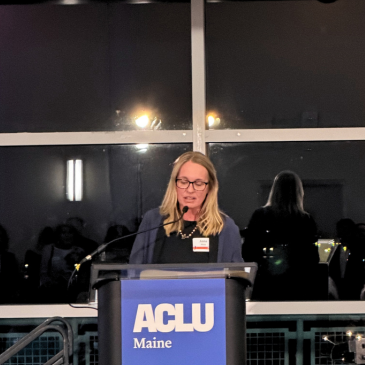The Maine Law graduates fighting pollution and climate change in Maine’s Casco Bay
Sara Freshley ’22 attended Maine Law without any intention of litigating. She never saw herself working for a law firm or presenting arguments before a judge. For Freshley, her legal education was not the culmination of a journey to traditional practice but the means to an entirely different end — working for and defending the environment.
“I knew from the beginning I didn’t want to be in the courtroom,” Freshley explains. “I came in with a devoted interest in environmental advocacy work and I considered law school a tool that would help me do that kind of work.”
At Friends of Casco Bay, where Freshley now works as a Community Organizer and Volunteer Coordinator, she does precisely that kind of work, supporting the nonprofit’s mission to safeguard and improve the health of Casco Bay.
Freshley is one of three law school graduates on Friends of Casco Bay’s modest staff. All three attended Maine Law. All three agree it is this degree that allows them to be effective and creative advocates.
“We speak for the water,” says Ivy Frignoca ’93. She sits at the helm of the organization’s advocacy team as the Casco Baykeeper. “We don’t represent people; our mission is to protect the health of Casco Bay by fighting pollution and climate change.”
Roughly 50 years ago, Casco Bay was so polluted that boating magazines advised sailors to avoid its waters, which reeked of raw sewage and industrial chemicals. In 1971 Maine Senator Edmund Muskie spearheaded the Clean Water Act, a federal law that aimed to restore and maintain water health throughout the country. It went into effect the following year, outlining strict criteria for water bodies to meet. The criteria helped establish Friends of Casco Bay and steer its mission.

Founded in 1989 and staffed by the first Casco Baykeeper, Joe Payne, the organization’s purpose coalesced around monitoring the health of the Bay and using the data to inform local advocacy to improve water quality. Thanks to these initial efforts and the tools afforded by the Clean Water Act, Friends of Casco Bay made substantial strides to reverse the effects of centuries-long environmental degradation. Today’s nuanced problems caused by increasing urbanization and climate change require more and more sophisticated advancements in both science and policy.
Enter Frignoca.
When she was in law school in the early ‘90s, the wealth of opportunities that now exist for Maine Law students wasn’t yet a reality. Frignoca gained experience in private practice before working as a senior attorney at the Conservation Law Foundation. She remained in that role until Payne retired, and her dream job opened up.
“The issues that Joe Payne worked on set the foundation for the issues we address today,” Frignoca reflects. “Our toughest challenges are addressing both climate change and increasing urbanization. What has changed from Joe’s time is how we combat those threats. I apply the knowledge and art of lawyering to effectively evolve law and policy to meet current and future threats to the Bay’s health.”
While Friends of Casco Bay maintains an exacting and cutting-edge regimen of monitoring and data collection, the organization is also deeply involved in rulemaking and legislation to further defend the resource. To do that requires lawyers who understand the essential science as well as nuances of policy work — people like Freshley and Heather Kenyon ’22.
While Freshley’s focus is trained outwards, aimed at educating and mobilizing the community around issues impacting Casco Bay, Kenyon works hand-in-hand with the organization’s staff scientist and Casco Baykeeper. In her role as Science and Advocacy Associate, Kenyon ensures that good science informs good policy and, sometimes, the other way around. Her degree is essential in this kind of exchange.
Kenyon completed the environmental law certificate while in school. She also worked on the Oceans and Coastal Law Journal and pursued several different externship opportunities around environmental issues with Maine Conservation Voters and the Maine Department of Marine Resources. Shortly after beginning work with Friends of Casco Bay, it came time to draft stormwater regulations. Kenyon fell effortlessly into the work.
“I feel so comfortable working with the Department of Environmental Protection and our legislature,” Kenyon adds, “but that’s entirely because of my law school degree. I’ve had to recognize that’s not how most people feel.”
“Sara’s charismatic personality and command of content inspire our community to support our advocacy,” Frignoca elaborates. “No matter the audience, people respond and engage with her. That’s an extremely valuable skill and one that’s going to be increasingly important to our future work. If she had become a traditional lawyer she would have been a compelling trial lawyer.”
That future can often feel a little daunting when squaring up against goliaths like climate change. But again, that’s where all three say their law degrees serve them well — they dig deep into the complexities of law and science and abstract out the principles that help them protect the Bay. They engage in dialogues that require listening and crafting solutions similar to mediation or settlement of court cases. “These issues can be really overwhelming, in the same way defending someone from a drug charge or non-violent crime can be,” Freshley says. “You’re not necessarily going to solve that social problem through representing that client, but you can localize that issue, begin to chip away at it.”
When it comes to the threats Maine’s beloved waters face, the Friends of Casco Bay are certainly chipping away.

